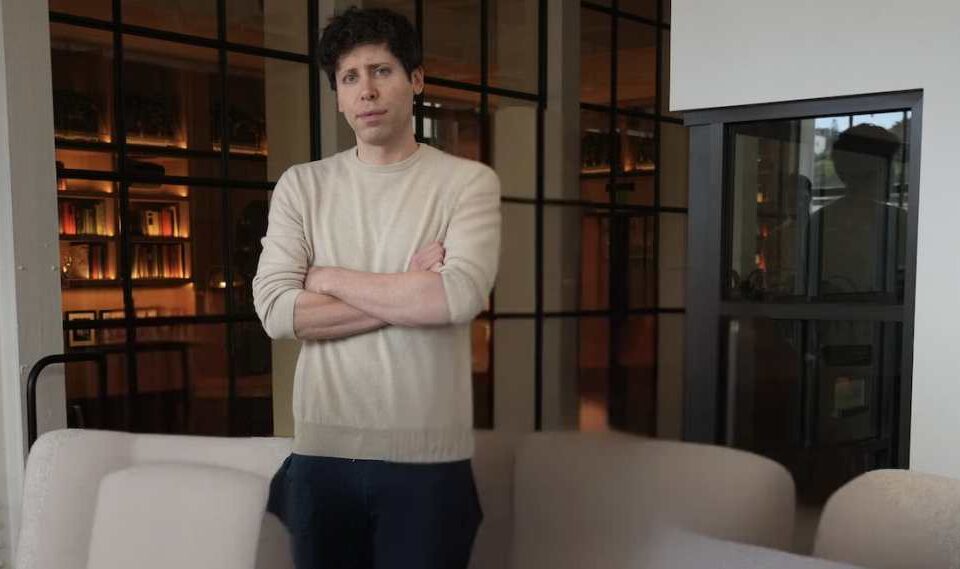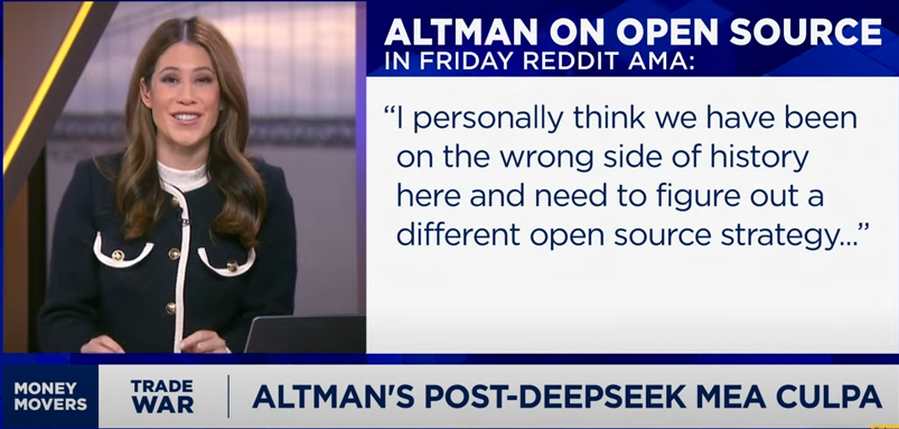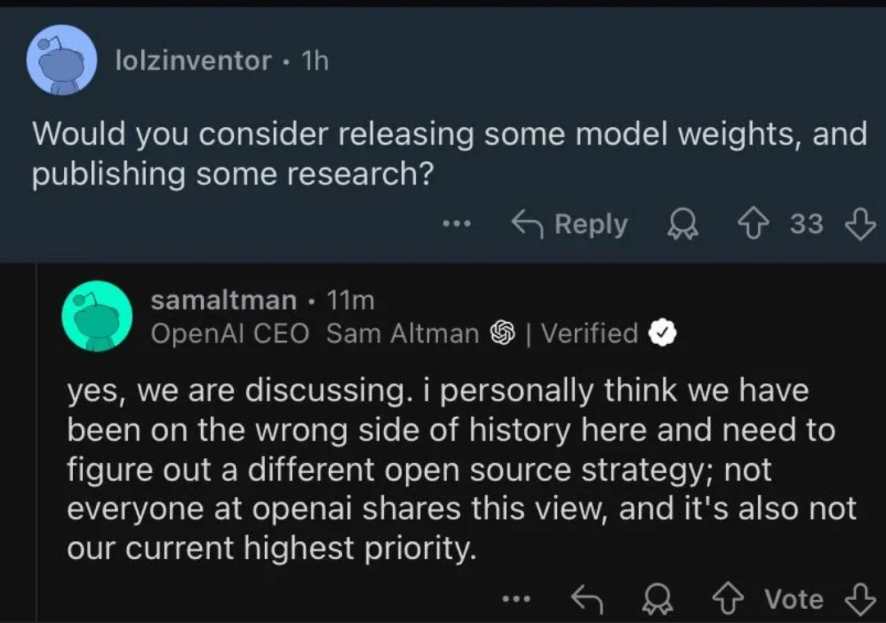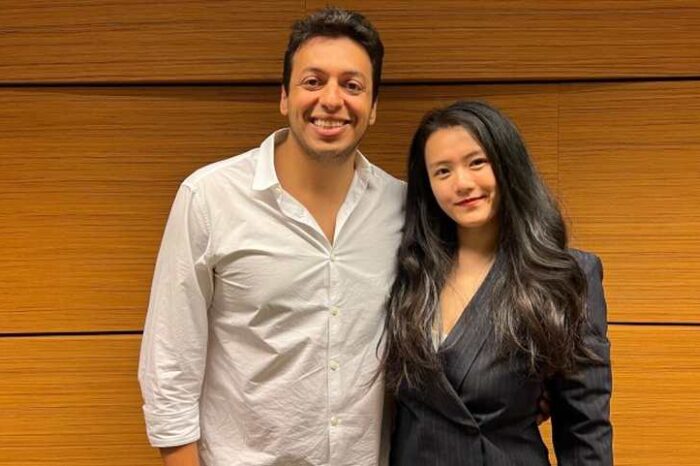Sam Altman: OpenAI has been on the ‘wrong side of history’ post-DeepSeek and ‘needs to figure out a different open source strategy’

Chinese AI startup DeepSeek has shaken up the industry. Its open-source model, DeepSeek-V3, is outperforming leading U.S. models—all while using less advanced chips and consuming less energy. This success is forcing OpenAI to reconsider its stance on open-source AI.
OpenAI’s Shift Toward Open Source
Founded in 2015 by Sam Altman and Elon Musk, OpenAI originally positioned itself as a nonprofit research institution focused on developing safe and beneficial artificial general intelligence (AGI). Over time, it pivoted toward a commercial model, emphasizing closed-source AI with proprietary models like ChatGPT.
Now, that approach may be shifting.

Credit: CNBC YouTube
DeepSeek’s AI Breakthrough Pushes OpenAI to Rethink Its Open Source Strategy
During a Reddit Ask Me Anything (AMA) over the weekend, Sam Altman fielded questions about OpenAI’s stance on open-source AI—especially in light of DeepSeek’s rapid progress.
When asked whether OpenAI would release model weights and publish more research, Altman responded:
“I personally think we’ve been on the wrong side of history here and need to figure out a different open-source strategy.”
This is a major shift from someone who has long defended a closed-source approach, citing security concerns, competition, and monetization as key reasons. Admitting that OpenAI may have miscalculated signals growing pressure—one that could reshape the AI industry.
“OpenAI Has Been the Wrong Side of History…, Needs Different Open-Source Strategy,” Altman says

What This Means for the AI Industry
This shift:
- Reinforces Meta’s open-source strategy, while pushing other closed-source players—Anthropic and Google DeepMind—to clarify their positions.
- Reflects intensifying competition, as OpenAI adjusts to stay ahead.
Altman also acknowledged that DeepSeek R1 is a strong model and confirmed that OpenAI will continue improving its own models. However, he noted:
“Maintain less of a lead than we did in previous years.”
This suggests OpenAI no longer enjoys the clear dominance it once had.
Open-Source AI is Catching Up
Open-source models, combined with distillation techniques, have significantly narrowed the gap between proprietary and freely available AI.
A telling example:
- A test called “Humanity’s Last Exam”, designed to measure how close AI is to human-level intelligence, has seen a dramatic shift.
- In just two weeks, the top-performing model tripled its score—and now, five models outperform what was previously considered the best.
How This Affects Investors
The AI industry is moving at an unprecedented pace, and investors may need to rethink expectations for:
- Valuations, which could see more volatility.
- Competitive advantages, as companies race to maintain relevance.
- Market leadership, as dominance shifts between key players.
The evolving AI landscape also presents new opportunities, especially for companies building applications on top of these breakthroughs.
OpenAI’s Next Move
Amid these developments, OpenAI launched a deep research tool over the weekend. The tool:
- Scans the internet
- Delivers concise, comprehensive reports
This new offering signals OpenAI’s push to stay competitive in a market that’s changing faster than ever.
Meta in Panic Mode
OpenAI isn’t the only one reassessing its open-source strategy. Meta AI is also scrambling as DeepSeek’s free open-source model gains momentum—delivering better performance at a fraction of the cost. Our recent report, which drew over 60,000 unique visitors, highlighted just how much pressure Meta is facing as the AI race takes an unexpected turn.
Meanwhile, DeepSeek’s rise has reshaped the AI race, and OpenAI’s latest comments suggest it knows the competition is far from over.
Here’s CNBC’s detailed coverage of Altman’s Reddit AMA.




